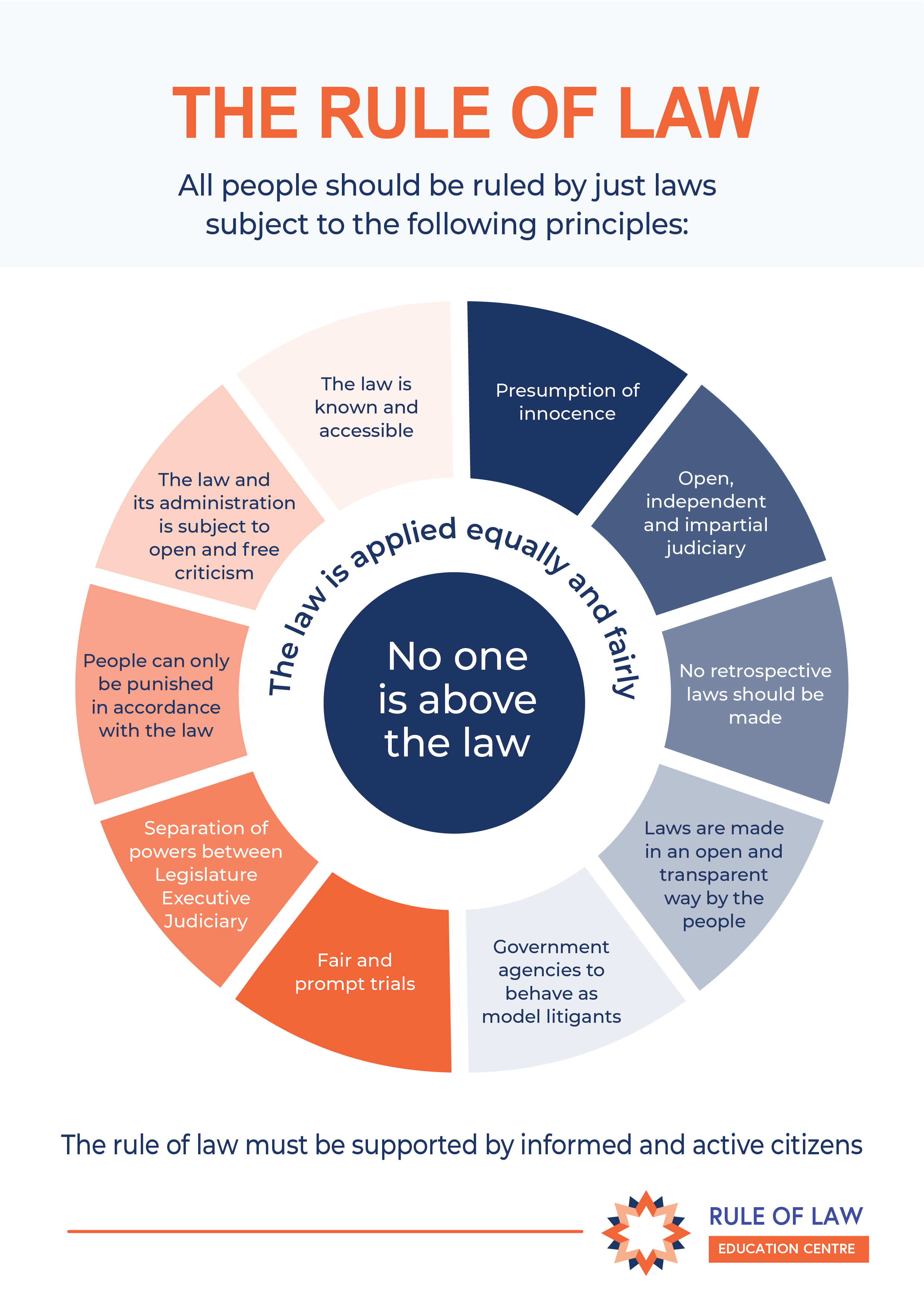Principles
The relevance of the Rule of Law is demonstrated by application of the following principles in practice.
- The separation of powers between the legislature, the executive and the judiciary.
- The law is made by representatives of the people in an open and transparent way.
- The law and its administration is subject to open and free criticism by the people, who may assemble without fear.
- The law is applied equally and fairly, so that no one is above the law.
- The law is capable of being known to everyone, so that everyone can comply.
- No one is subject to any action by any government agency other than in accordance with the law and the model litigant rules, no one is subject to any torture.
- The judicial system is independent, impartial, open and transparent and provides a fair and prompt trial.
- All people are presumed to be innocent until proven otherwise and are entitled to remain silent and are not required to incriminate themselves.
- No one can be prosecuted, civily or criminally, for any offence not known to the law when committed.
- No one is subject adversely to a retrospective change of the law.
The Rule of Law Wheel
Central to the wheel and the rule of law is the concept that no one is above the law – it is applied equally and fairly to both the government and citizens. This means that all people, regardless of their status, race, culture, religion, or any other attribute, should be ruled equally by just laws.
Beyond this, the outer edge of the wheel illustrates a number of interrelated principles that reflect the rule of law in Australia, such as the presumption of innocence, and fair and prompt trials.
These principles can be considered essential elements that contribute to maintaining the rule of law. Without these, the wheel would fail to turn and Australia’s rule of law would not continue to be upheld and maintained.
Another essential element is that these principles and Australia’s rule of law is supported by informed and active citizens. Without responsible and engaged citizens, society is unable to work together to uphold important principles and values which support our rule of law and democratic society.
The Objects of the Rule of Law Institute are:
To foster the rule of law in Australia.
To promote good governance in Australia by the rule of law.
To encourage truth and transparency in Australian Federal and State governments, and government departments and agencies.
To reduce the complexity, arbitrariness and uncertainty of Australian laws.
To reduce the complexity, arbitrariness and uncertainty of the administrative application of Australian laws.
To have officers of Australian Federal and State governments, and government departments and agencies accountable at law, in the same way as other members of the community.
To have laws applied by Australian Federal and State governments, and government departments and agencies fairly, rationally, predictably, consistently and impartially.
To have investigations and prosecutions carried out in respect of any Australian objectively, with justice, fairness and promptness, and to have investigators and prosecutors treat the person being investigated or prosecuted as they would want to be treated if the roles were reversed.
To champion laws in Australia and their administration which protect and advance individual Australians, not oppress nor intimidate them.
To recognise that whilst it is necessary to have a large body of laws in Australia, it is also necessary that non-compliance is treated proportionally and productively, in a just and fair manner.

